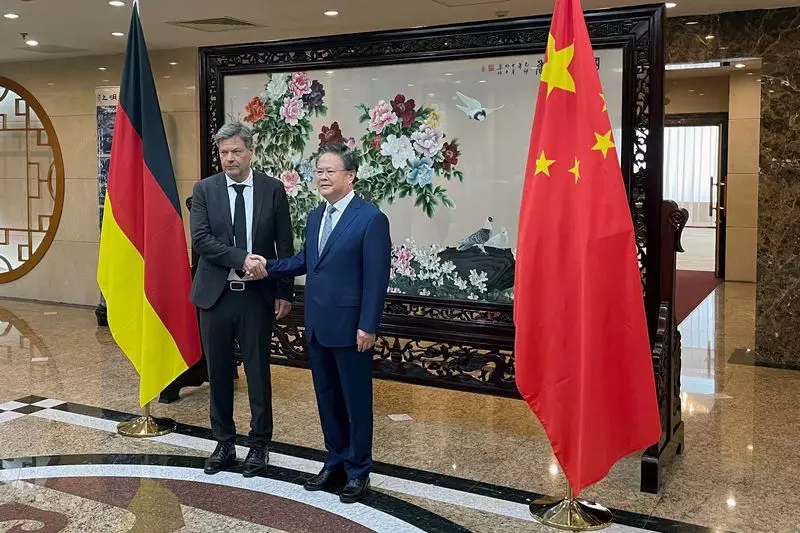Germany’s Economy Minister, Robert Habeck, recently visited China to discuss the proposed European Union tariffs on Chinese imports. Contrary to popular belief, Habeck clarified that these tariffs were not intended as a punishment but rather as a means to combat what the EU considers unfair subsidies granted to Chinese companies.
During a dialogue session in Beijing, Habeck emphasized that the EU’s approach to tariffs differed from countries like the U.S., Brazil, and Turkey, who had used punitive tariffs in the past. He explained that the European Commission had been meticulously examining whether Chinese companies had unfairly benefited from subsidies for the past nine months. Therefore, any countervailing measures taken by the EU were not punitive but rather meant to level the playing field for all companies.
Habeck stressed the importance of achieving common, equal standards for market access between the EU and China. He expressed the need for fair competition and highlighted that the proposed tariffs were aimed at creating a more balanced economic environment.
In response to the proposed tariffs, Chairman Zheng Shanjie of China’s National Development and Reform Commission assured that China would take necessary measures to protect its companies. Despite the escalating tensions, both parties acknowledged the importance of dialogue and negotiation to address the issues at hand.
While trade tensions were a significant topic of discussion, the primary goal of the meeting between Germany and China was to deepen cooperation for the green transition. Both countries acknowledged their responsibilities in preventing global warming and signed a memorandum of understanding for cooperation on climate change and sustainable development.
China has made significant strides in renewable energy with almost 350 gigawatts of new capacity installed in 2023. However, coal still dominates China’s energy mix, accounting for nearly 60% of the country’s electricity supply. Both Habeck and Zheng highlighted the importance of balancing renewable energy expansion with reducing CO2 emissions to combat climate change effectively.
The discussions between German Economy Minister Robert Habeck and Chinese officials emphasized the need for fair competition, market access, and cooperation in addressing climate change. Despite the challenges posed by trade tensions and energy transitions, both parties remain committed to finding mutually beneficial solutions for the future.

